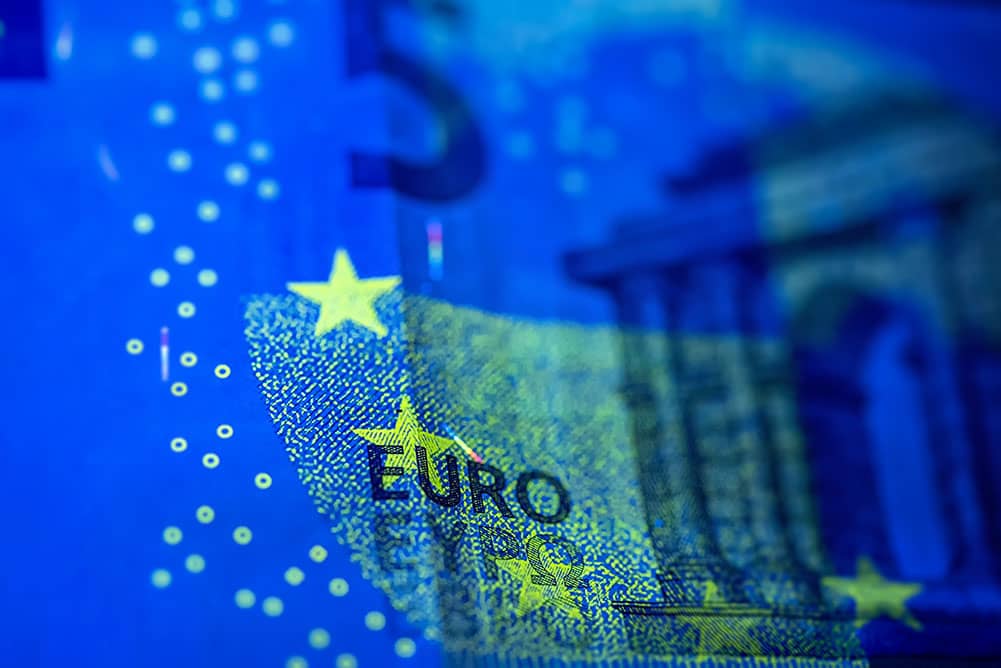Euro-Dollar Risks Going Lower on U.S. CPI Inflation Risk
- Written by: Gary Howes

Image © Adobe Images
The foreign exchange market appears highly confident of another downside surprise from Thursday's CPI inflation release, suggesting risks are skewed to the downside in the event data prints hotter than expected.
An above consensus reading would likely push the Federal Reserve to raise interest rates again in September in a move that would support U.S. bond yields and potentially weigh on investor sentiment; two developments that would support the Dollar.
Traders at Citi say market participants expect a weak CPI release which would likely undermine the Dollar and given such expectations, the bigger market moves are likely to be with upside surprises in the data.
"Expectations remain low so an in-line print will unlikely see a USD selloff," says a note from Citi's CitiFX Wire.
The market is positioned for a CPI inflation reading of 0.2% month-on-month and 3.3% year-on-year, up from 3.0%.
Core CPI - potentially more influential than headline CPI - is expected to read a 0.2% m/m and 4.7% y/y.
"The US CPI report will be the main market driver," says Dominic Schnider, a strategist at UBS. "A soft CPI reading would weaken the US dollar, in our view."
Compare EUR to USD Exchange Rates
Find out how much you could save on your euro to US dollar transfer
Potential saving vs high street banks:
$2,750.00
Free • No obligation • Takes 2 minutes
The Dollar enters the report with some wind in its sails having been on the advance since mid-July as a medium-term trend of weakness stalled and then retreated.
The move saw the Euro to Dollar exchange rate (EURUSD) slide from highs near 1.12 to just below 1.10 at the time of writing.
"We expect m/m core CPI at 0.18% tomorrow, which is a tad lower than consensus at 0.20% - that could initially boost the EUR/USD," says Stefan Mellin, Chief Analyst, FX Strategy, at Danske Bank.
"According to our experts the data will suggest that the Fed rate has peaked. That means the US dollar should not be able to benefit from the data as the publication will not call the rate pause in September into question while at the same time cementing the view that there will be no further step in November either," says Antje Praefcke, FX Analyst at Commerzbank.
Above: Is China's deflationary trend pulling down U.S. inflation? Image courtesy of JP Morgan.
However, should data come in above expectation the Dollar's recent trend of appreciation would likely extend and key support levels in the Euro-Dollar and Pound-Dollar pairs would likely give way to fresh multi-week lows.
Analysts at JP Morgan say the current backdrop is already one that is supportive of further dollar strength and they see gains into year-end as being likely.
"U.S. exceptionalism, Treasury supply/QT, widening yield spreads, August seasonality and higher commodity prices are all sources of support," says Meera Chandan, a FX strategist at JP Morgan.
U.S. exceptionalism refers to the ongoing strong performance of the U.S. economy that has supported U.S. bond yields and the Dollar of late. The increased supply of treasury bonds to fund the government has meanwhile put upside pressure on bond yields, which in turn attracts foreign capital inflows and supports the Greenback.
Seasonality means August is traditionally a month of low liquidity and this scarcity traditionally supports the Dollar.
In fact, Citi - the world's largest primary dealer of foreign exchange - said its London dealing desk noted today volumes are some 30% down on the past 30-day average.
"We continue to expect the general US outperformance on the data front to weigh on the cross in the coming months," adds Danske Bank's Mellin.
Nevertheless, the bullish U.S. Dollar stance is not a consensus trade for the coming months with some analysts seeing a rebound in Euro-Dollar as being possible once the current counter-trend move in the Greenback fades.
"The general trend for the trade-weighted USD since 4Q22 remains downward, and we see little chance of a reversal," says Schnider at UBS. "Fundamental long-term factors remain a burden for the US, including the dollar’s expensive valuation, the twin deficit, the ratings outlook, and the high allocation of funds in the US."
"So, we remain confident that demand for the euro will pick up on the back of the ECB's commitment to fight inflation, more solid global growth, and increased risk-taking," adds Schnider.
Compare EUR to USD Exchange Rates
Find out how much you could save on your euro to US dollar transfer
Potential saving vs high street banks:
$2,750.00
Free • No obligation • Takes 2 minutes




